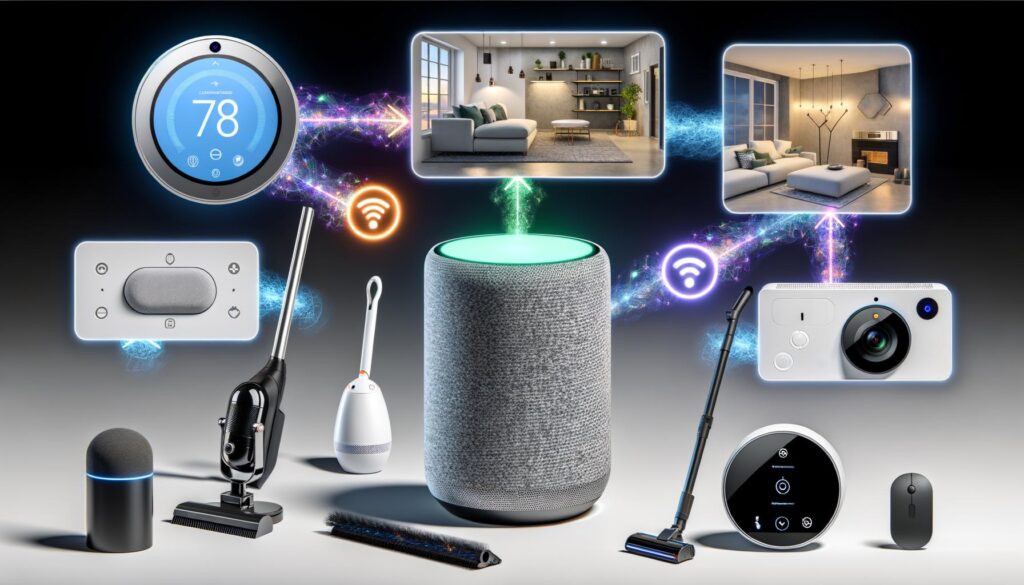Benefits of Smart Devices
Smart devices bring a plethora of advantages to modern homes. First and foremost, they offer unparalleled convenience. For instance, smart thermostats learn homeowners’ schedules, adjusting the heating and cooling systems for optimal energy efficiency. Additionally, smart lighting systems can be programmed for specific times, creating an ambiance that adapts to lifestyles while also conserving energy. Another significant benefit lies in enhanced security. Smart security systems provide real-time alerts and remote monitoring capabilities, giving homeowners peace of mind whether they’re inside their homes or miles away. These systems often come equipped with cameras, motion detectors, and even facial recognition technology, ensuring comprehensive security coverage.
Eco-Friendly Living with Smart Technology
The shift towards smart devices also marks a move towards more sustainable living. By optimizing energy usage, smart homes contribute to reduced carbon footprints. For example, smart plugs and power strips can help manage energy consumption by cutting off power to appliances when they are not in use. Smart irrigation systems also offer eco-friendly solutions by automatically adjusting watering schedules based on weather conditions, conserving water while maintaining landscape health. The focus on sustainability is a notable trend, as homeowners increasingly look for ways to minimize their impact on the environment.
Challenges and Considerations
Despite the numerous advantages, adopting home automation and smart devices does come with its share of challenges. One major concern is data privacy. As these devices collect and transmit data, it’s crucial for users to understand how their information is being used and to ensure that their systems are protected against cyber threats. Another challenge is the initial investment required. While smart devices often lead to long-term savings, the upfront costs can be a barrier for some, necessitating careful consideration of budget and needs. Lastly, compatibility between different brands and systems can pose issues, making it important for users to research and select devices that seamlessly integrate with existing or planned home automation setups.
Future of Home Automation
Looking ahead, the future of home automation and smart devices is filled with potential and innovation. As technology continues to evolve, we can expect even more integration and intuitive systems that understand our preferences and routines. The development of artificial intelligence and machine learning capabilities will likely revolutionize how we interact with our homes, making them more responsive and autonomous. Moreover, the increasing focus on sustainable technology will drive the creation of devices designed to further reduce energy consumption and environmental impact, aligning with global efforts to fight climate change. As these trends continue to develop, embracing home automation can lead to a more comfortable, efficient, and environmentally friendly lifestyle, setting the stage for the homes of tomorrow.

